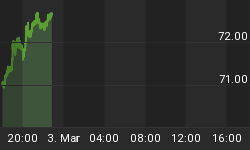This week the bailout of the Big Three automakers was under heavy consideration in Congress's lame duck session. I have always opposed government bailouts of private organizations. Back in 1979 Congress had hearings about bailing out Chrysler and I was on record pointing out that these types of policies are foolish and very damaging to the long term economic health of our country. They still are.
There was also renewed pressure this week to bailout homeowners and send another round of stimulus checks to "Main Street" to balance out all the handouts to big business. It seems that eventually the entire economy is going to be blanketed over with Federal Reserve notes. Most in Washington are completely oblivious as to why this model of money creation and spending is so dangerous.
We must remember that governments do not produce anything. Their only resources come from producers in the economy through such means as inflation and taxation. The government has an obligation to be good stewards of these resources. In bailing out failing companies, they are confiscating money from productive members of the economy and giving it to failing ones. By sustaining companies with obsolete or unsustainable business models, the government prevents their resources from being liquidated and made available to other companies that can put them to better, more productive use. An essential element of a healthy free market, is that both success and failure must be permitted to happen when they are earned. But instead with a bailout, the rewards are reversed - the proceeds from successful entities are given to failing ones. How this is supposed to be good for our economy is beyond me.
With each bailout we hear rhetoric that this is the mother of all bailouts. This will fix the problem once and for all, and that this is absolutely necessary to avert disaster. This sense of panic squeezes astonishing amounts of dollars out of reluctant but hopeful legislators, who hate the position they are being put in, but are relieved that it will be the last time. It is never the last time, and again and again we are faced with the same scenarios and the same fears. We are already in the bailout business for such a staggering amount that admitting it was wrong in the first place would be too embarrassing. So the commitment to this course of action is only irrationally escalated, in the hopes that somehow, someway eventually it will work and those in power won't have to admit they were wrong.
It won't work. It can't work. We need to cut our losses and get back on course. There is too much at stake for too many people to continue down this road. The bailouts thus far to AIG, Bear Stearns, Fannie and Freddie, and TARP funds amount to around $1.5 trillion. Considering our GDP is $14 trillion, and our Federal budget is already $3 trillion, this additional amount will significantly eat into our future lifestyles. That amounts to an extra $5,000 that every person in the country needs to somehow produce just to keep up. It is obvious to most Americans that we need to reject corporate cronyism, and allow the natural regulations and incentives of the free market to pick the winners and losers in our economy, not the whims of bureaucrats and politicians.
















